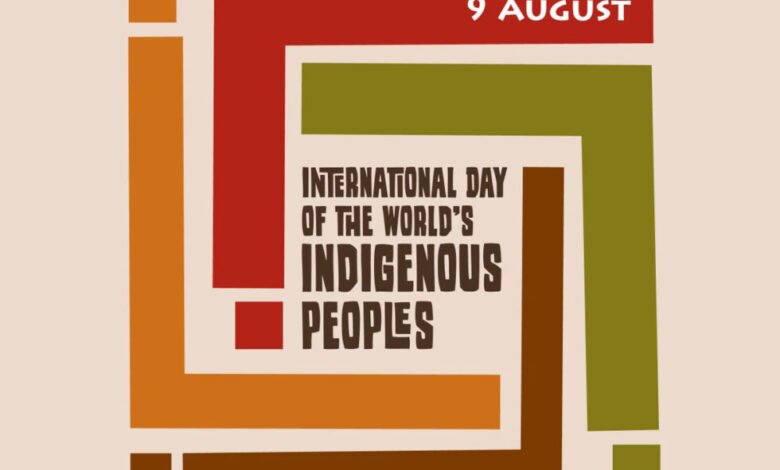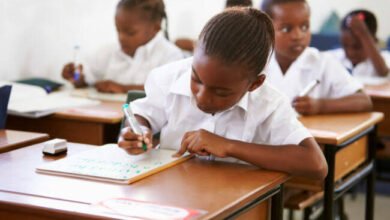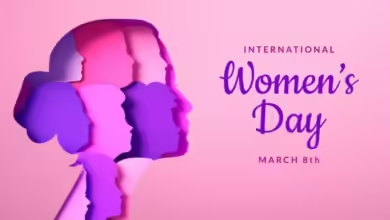International Day of the World’s Indigenous Peoples: Honoring Culture, Protecting Rights, and Celebrating Resilience

Every year on August 9, the world pauses to honor the voices, histories, and rights of Indigenous Peoples. Declared by the United Nations General Assembly in 1994, the International Day of the World’s Indigenous Peoples commemorates the first meeting of the UN Working Group on Indigenous Populations in 1982.
It is both a celebration and a call to action, a day to recognize the resilience, knowledge, and cultural diversity of more than 476 million Indigenous people living in at least 90 countries.
These communities carry forward traditions and ways of life that connect them deeply to the land and water. About 200 tribes choose to live in voluntary isolation, preserving customs that have endured for centuries.
They occupy between 22% and 28% of the world’s land area, much of it rich in biodiversity. Many feed themselves through self-sufficient systems, using knowledge honed over generations to adapt to environmental changes.
For Indigenous children, these traditions are not just history lessons; they are part of daily life, passed down from parents and grandparents through storytelling, song, etc.
What Does It Mean to Be Indigenous?
While there is no single, official UN definition of “Indigenous,” there is a shared understanding based on common features:
- Self-identification as Indigenous at both the individual and community levels
- Historical continuity with pre-colonial societies
- Strong ties to natural resources and territory
- Distinct political, social, or economic systems
- Unique cultures, languages, and spiritual beliefs
- Status as non-dominant groups within society
-
Commitment to maintaining and passing down ancestral systems, traditions, and the environment.
These characteristics unite a remarkable variety of peoples whose combined languages comprise most of the world’s 7,000 spoken languages. For many Indigenous children, growing up bilingual or multilingual is the norm, making them keepers of linguistic diversity.
2025 Theme of International Day of the World’s Indigenous Peoples
The theme for the year is Indigenous Peoples and AI: Defending Rights, Shaping Futures. This theme invites the world to consider how artificial intelligence (AI) can interact with traditional knowledge systems.
AI offers potential to address challenges such as climate change and biodiversity loss, but it also presents risks.
Without safeguards, AI could compromise the permission, control, and data sovereignty that protect Indigenous knowledge.
However, with ethical use and respect for rights, AI can become a tool for preserving and amplifying Indigenous knowledge, ensuring that children grow up with both their heritage and access to new tools for the future.
Why International Day of the World’s Indigenous Peoples Matters
The International Day of the World’s Indigenous Peoples is more than a commemoration; it’s a reminder that justice, cultural diversity, and environmental stewardship are interconnected. Indigenous peoples are not just guardians of the past; they are key to building equitable, sustainable societies for the future.
By raising awareness of ongoing injustices and celebrating Indigenous resilience, this day urges governments, organizations, and individuals to listen, learn, and take action.
A Landmark in Indigenous Rights
A key milestone in advancing Indigenous rights came in 2007, when the UN General Assembly adopted the United Nations Declaration on the Rights of Indigenous Peoples (UNDRIP). This historic document affirms their rights to:
- Self-determination
- Equality before the law
- Cultural preservation
-
Free, prior, and informed consent on matters affecting their lands, resources, and lives
This means children have the right to grow up in their culture, speak their native language, and learn the traditional knowledge of their people without fear of it being erased.
Challenges That Affect Indigenous People
Despite their invaluable contributions, Indigenous peoples remain among the most marginalized groups globally. They face:
- Land grabs and environmental degradation from mining, deforestation, and tourism
- Health vulnerabilities, often due to limited immunity to common diseases and a lack of medical access.
- Forced assimilation and erosion of languages and traditions
- Poverty — with 18% of Indigenous peoples living in extreme poverty globally
-
Disproportionate impacts from climate change, which threaten ecosystems central to their survival
An estimated 11% of the world’s forests lie within Indigenous territories. When land rights are protected, these forests and the children who depend on them thrive. When they are violated, biodiversity, livelihoods, and cultural heritage are lost.
A Call to Solidarity
Support for Indigenous peoples can take many forms:
- Advocating for fair land policies
- Preserving endangered languages
- Promoting cultural education in schools
-
Ensuring access to healthcare and education for Indigenous children and families
As UNESCO, the UN Permanent Forum on Indigenous Issues (UNPFII), and countless Indigenous-led organizations continue their work, the hope is that no child is left behind and that the knowledge of the indigenous peoples continues to guide humanity toward harmony with the Earth.
Today’s commemoration is for a future shaped by respect, understanding, and shared responsibility. Honoring Indigenous peoples means protecting our planet, our cultures, our children, and our collective humanity.





